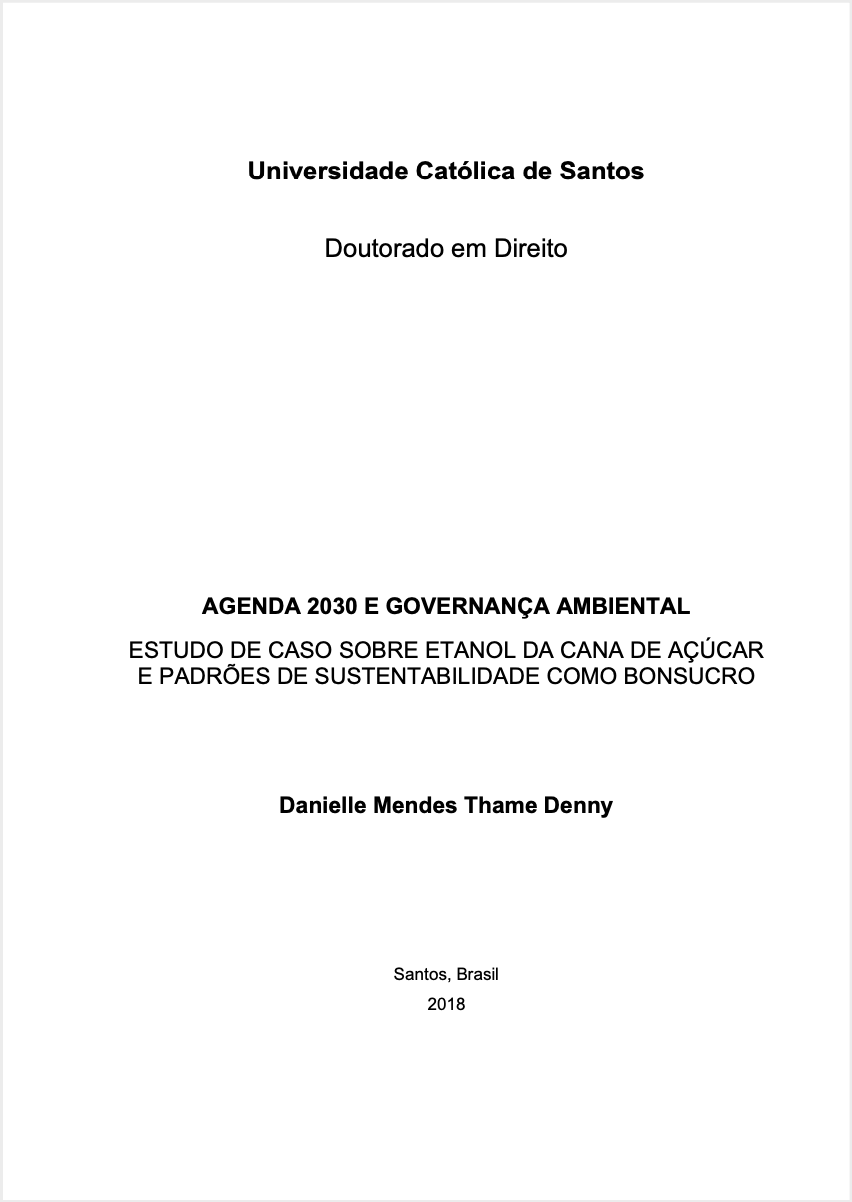Núcleo de Estudos em Tribunais Internacionais
Faculdade de Direito
Universidade de São Paulo
Largo de São Francisco, 95
Sé – São Paulo, SP
01006-020
Doctoral dissertation
Abstract: The objective of this thesis is to monitor the effectiveness of Agenda 2030 and of the Sustainable Development Objectives (ODSs), especially those related to renewable fuels, achieved through regulations and standards related to voluntary standards of sustainability, applicable in economic activities developed by private agents in global chains production, thereby building a governance logic with international coverage. Contemporaneity brings many challenges to international law, and the legal framework for implementing Agenda 2030 demands complex governance initiatives. Within this broad theme, this research makes a study case of Brazilian sugarcane ethanol and specifically the Better Sugarcane Initiative (BONSUCRO) sustainability standard to serve as an object of analysis and to identify several factors that intervene in the international environmental governance logic pertinent to the thematic hereby studied. The hypothesis demonstrated in this study was that the international guidelines of Agenda 2030 are consistently interlinked with the implementation of sustainability criteria foreseen in public policies and private practices. Its effective deployments are influenced by several intervening variables such as regulation, regulations, procedures and standards, whether state, private, national, regional or local. With the scope of showing that, collects indications that the dependent variable, Bonsucro sustainability standards, generate the implementation of Agenda 2030, this thesis analyzes the causal mechanisms, intervening variables, that impact each other and impact the causal relation between sustainability and Agenda 2030, in order to generate the consequence of greater effectiveness of the ODSs and thus, mutually reinforcing the need to adopt sustainability standards. The causal mechanisms, intervening variables, studied in this thesis were divided in three types: the negative socio-environmental externalities of ethanol, international regulations and national regulations. The conclusion was that the effect between sustainability standards, dependent variable, and Agenda 2030, an independent variable, could be identified, that is, there is sufficient evidence that sustainability standards generate application of ODSs.



